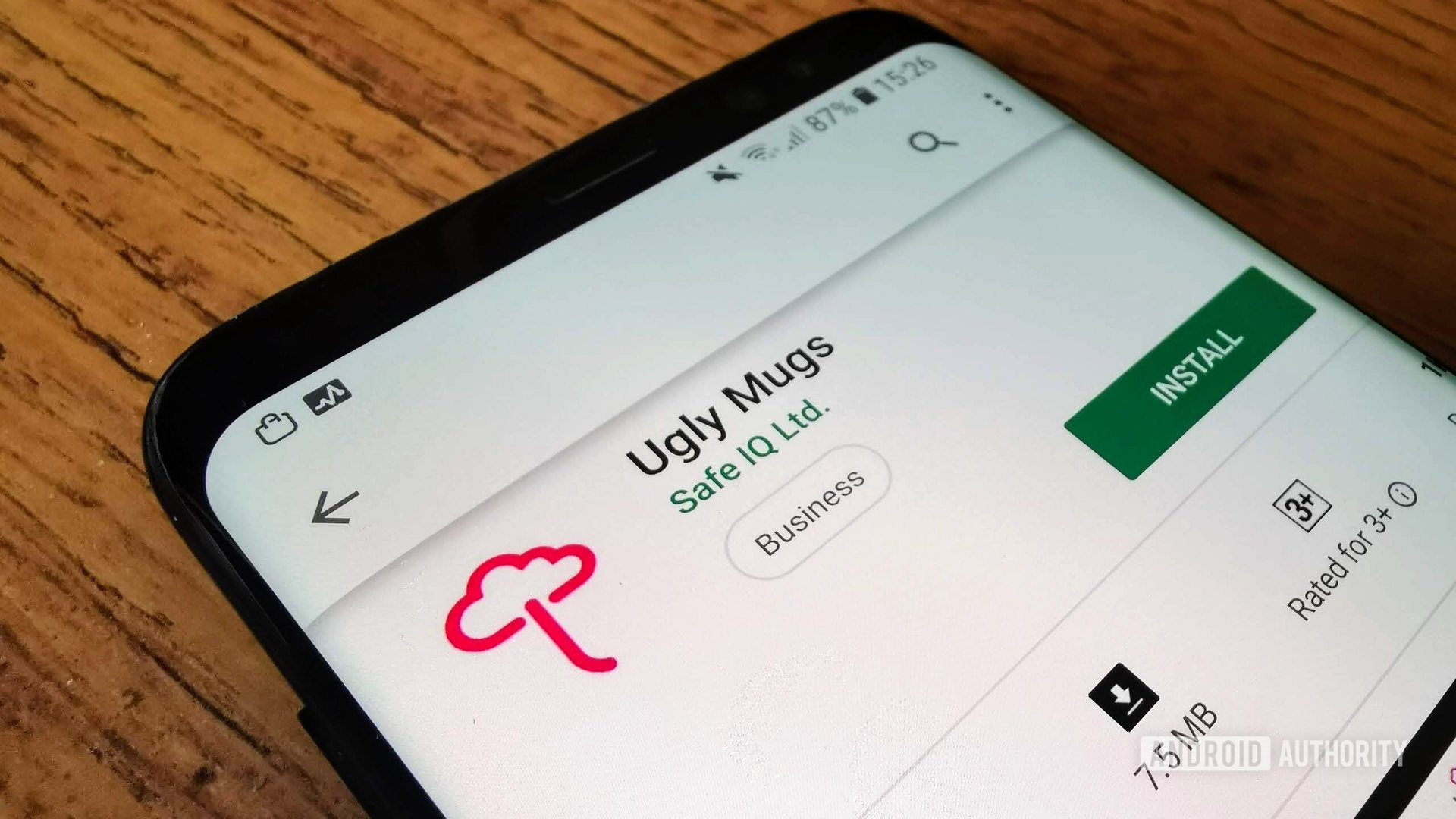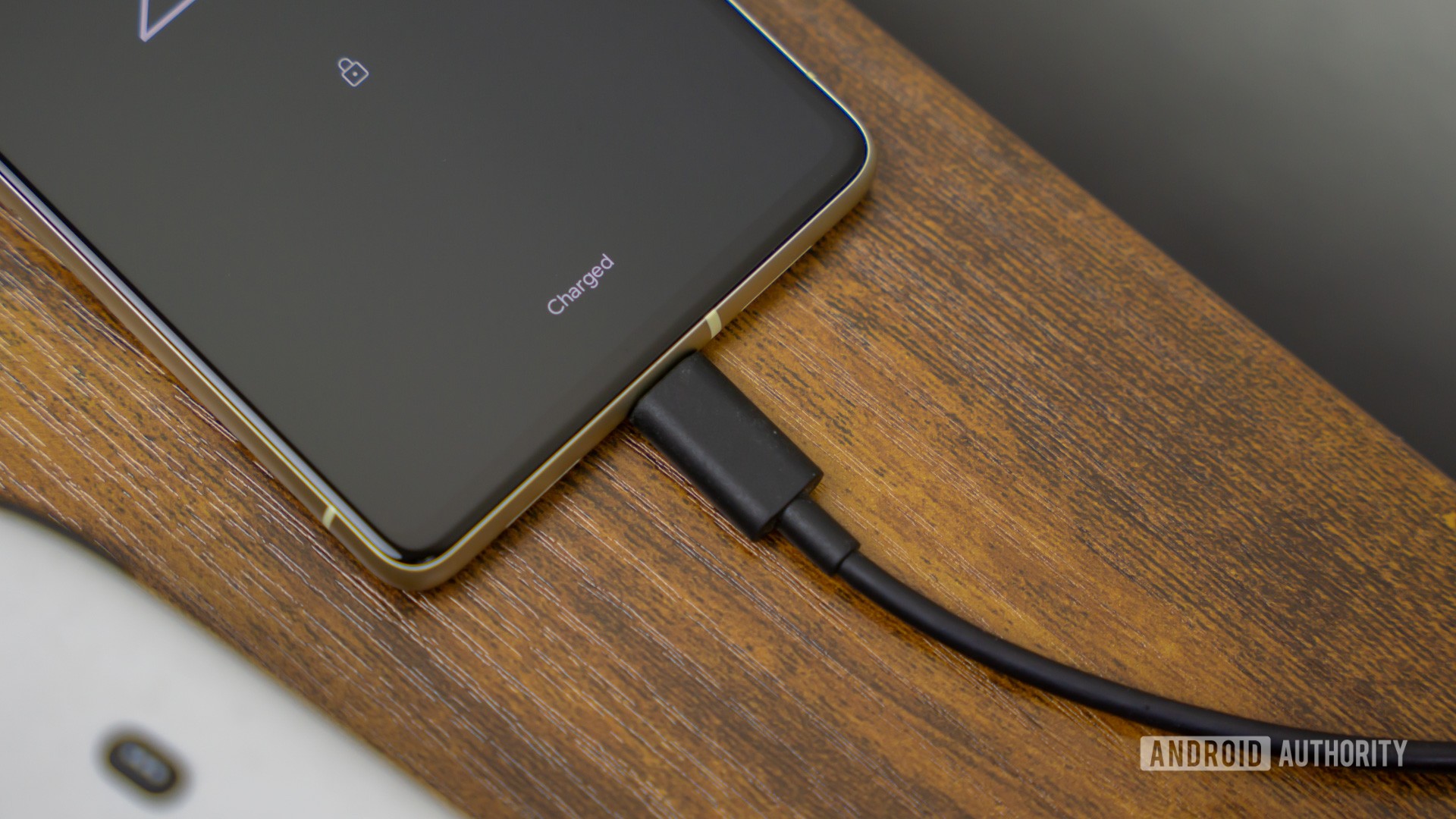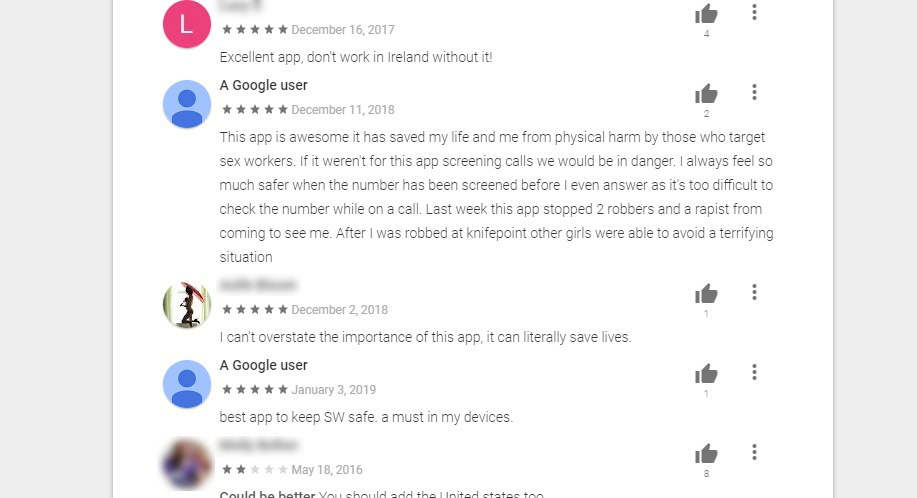Affiliate links on Android Authority may earn us a commission. Learn more.
Google’s new permissions policy could cripple popular sex workers’ safety app
Published onFebruary 18, 2019

- Google’s revised call and SMS permissions policy could see a sex workers’ safety app lose key functionality.
- The Ugly Mugs app allows workers to screen calls and texts for dangerous clients.
- Google rejected the organization’s application for an exception.
Google’s decision to restrict call and SMS permissions has been a divisive one, as everything from task automation to phone tracking apps fell foul of the move.
The policy change goes beyond mere inconvenience. The new limitations could have serious consequences for some sex workers, as a prominent safety app used by hundreds of Irish and U.K. workers is set to lose key functionality or be removed from the Play Store next month.
The Ugly Mugs app, developed by London-based Safe IQ, allows workers to screen incoming calls and text messages for dangerous clients, using a traffic light system of sorts (yellow, orange, red) to classify clients. The app also allows users to manually search for numbers in a database to check if they are associated with potentially dangerous clients, as well as get help and support.
“Ugly Mugs is a not-for-profit technology initiative that improves the safety of workers in Ireland and the UK and reduces crimes committed against them, by bringing workers together to share information about potential dangers,” according to the initiative’s website. The term “ugly mugs” refers to clients who assault, rob, or otherwise abuse sex workers. The first “ugly mugs schemes,” designed to warn sex workers about dangerous clients, have been established in the ’80s.
“So basically Google wrote to us in November and told us we have to remove the call screening features of our app, and we’d have to apply for an exception if we wanted to keep them,” the director explained in a telephonic interview. “We did apply for an exception and just last week they refused our exception.”
An automatic rejection?
Smyth suspects that the application, which was filed in December, was automatically refused and that a human being didn’t look at the request. A Google developer support email sent to Safe IQ and seen by Android Authority confirms the rejection in what appears to be a canned response.
“The declared functionality {Caller ID, spam detection and spam blocking} is determined to be unnecessary or not aligned with the core functionality of your app,” reads an excerpt of the email.

“We just want to keep these features if possible, because they really do help people stay safer,” Smyth said, noting that major sex workers organizations, such as Sex Workers Alliance Ireland, were in support of the app as well.
The Android app currently has over 1,000 installs, with hundreds of sex workers using it every day. Smyth say the Ugly Mugs website and mobile apps average roughly 7,000 users in a year, noting that many sex workers are part-time or occasional workers.

Google’s refusal to make an exception is particularly noteworthy in Ireland due to the country’s laws, the Safe IQ representative says. “In Ireland, the situation is that sex workers are criminalized under what’s called brothel keeping laws, which means that in order to work legally, sex workers must work alone. So they’re not allowed to have a friend for safety, and so that makes them targeted by offenders, as it’s known that someone who is doing sex work must always work alone.”
When contacted for comment, a Google representative directed us to a January blog post that reminded developers about the upcoming changes to the calls and SMS log policy. According to the post, penned by Google Play director Paul Bankhead, Google employs “global teams [to] carefully review each submission.” The teams decide which apps get to keep their access to the calls and SMS log based on factors including “user benefit of the feature,” “likelihood that an average user would understand why this type of app needs full access,” and “importance of the permission relative to the core functionality of the app.”